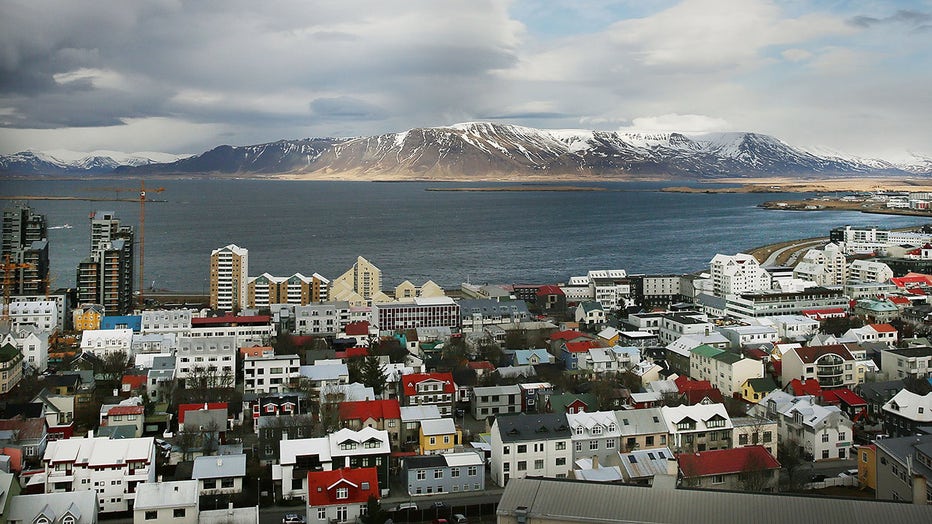How Iceland's experimental 4-day workweek turned out
4-day workweek: CEO of nonprofit discusses benefits
Joe O’Connor, CEO of 4 Day Week Global, discusses the changing attitudes of work culture and how both employees and companies have been shown to benefit from reduced working hours.
REYKJAVIK, Iceland - A new study reveals that Iceland’s experimental four-day workweek has "proven very successful," according to its researchers.
The report, published last week, offered insight into the program’s trial which introduced a shorter workweek in Iceland with no loss of pay.
Between 2020 and 2022, 51% of workers in the country accepted the offer of shorter working hours, including a four-day work week.
Following the trial, researchers analyzed the results of an employment market survey conducted by the Social Science Research Institute at the University of Iceland to understand job patterns, work environment, and the reasons why individuals left paid employment.
They found that the change to a shorter workweek had significant results, with a large majority of Icelandic workers (78%) reporting that they were satisfied with their present working time.
Workers ‘more satisfied’ with shorter workweek
Of those who saw their hours reduced over the last two years, 62% reported being more satisfied with their working time. Only 4% of workers suggested being more dissatisfied.
In addition, 97% of workers thought that shorter working hours had made it easier to balance work with their private life, or it kept the balance the same as before.
The report also found that 42% of those who had moved to shorter hours thought that it had decreased stress in their private life, versus 6% who felt it had increased.

FILE: Downtown Reykjavik, Iceland. (Credit: Spencer Platt/Getty Images)
In workplaces with higher proportions of women in the workforce, percentages of those indicating greater satisfaction were much higher at 70%, compared to 54% in more male-dominated workplaces.
Labor productivity increases
In two other trials between 2015 and 2019, employees in Iceland were given reduced hours of 35-36 hours per week, with no reduction in pay.
The trials, which involved 2,500 people, found that productivity stayed the same or improved in most workplaces, while workers’ wellbeing increased "dramatically."
Sanders bill would enact 4-day workweek
Senator Bernie Sanders has introduced a bill to reduce the workweek in America from 40 hours to 32 hours with no loss in pay.
Following those trials, Icelandic trade unions negotiated a reduction in working hours for tens of thousands of their members across the country.
The latest report also noted that productivity in Iceland has increased the most of the Nordic countries in the last five years.
"This is noteworthy as critics of the reduced hours initiative repeatedly claimed productivity would not increase in relation to reduced hours," the report stated, adding, "The economy has remained strong post reduction of working time."
Iceland’s economy remains strong
According to the report, Iceland’s economy has remained resilient, with low unemployment rates and strong economic growth, following the widespread adoption of shorter working weeks.
In 2023, the economy experienced a growth rate of approximately 4.1%, driven by tourism, fisheries, and other exports. Tourism remains a major contributor to Iceland’s economy.
As of 2023, the unemployment rate stood at 3.6%, one of the lowest in Europe, reflecting a strong labor market, according to the report.
According to a publication issued earlier this year by the Committee on Labor Market Statistics, labor productivity in Iceland has increased by 1.5% a year on average the last five years, the highest of the Nordic countries.
The Autonomy Institute in the United Kingdom and Iceland’s Association for Sustainability and Democracy also noted that Iceland logged faster economic growth last year than most European countries.
Other studies reveal benefits of short workweek
Earlier this year, a survey conducted by CNBC/Generational Lab polled 1,033 people between the ages of 18 and 34 with 81% of respondents saying they supported a four-day workweek because it would boost their productivity, compared to 19% sharing that their productivity would plunge.
RELATED: Four-day workweek would boost productivity, 81% of younger workers say
Last year, a police department in Colorado decided to try switching its employees to a four-day workweek – while still paying for 40 hours – and the results were "promising."
RELATED: Colorado police department's 4-day workweek leads to better response times
So promising, that the department said it planned to continue with four-day workweeks into 2024 and expand the program to other city departments.

